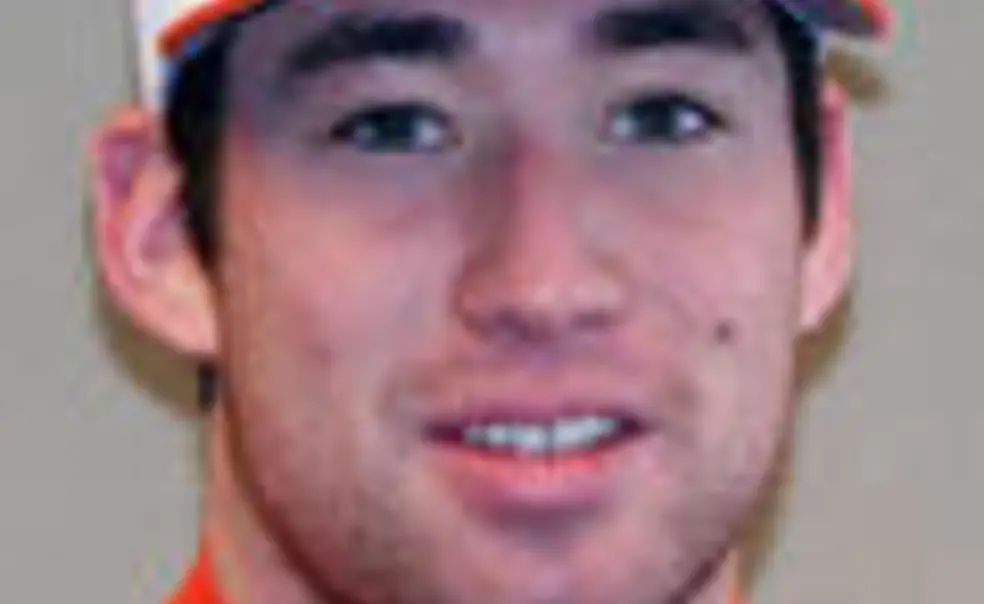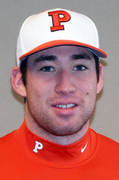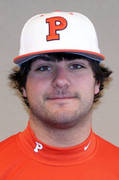NCAA Preview: Princeton baseball vs. Texas
Tonight, Princeton opens play at the NCAA baseball regional in Austin, Texas, returning to the national tournament for the first time since 2006 and the sixth time in coach Scott Bradley’s 14 seasons with the Tigers. This may be Bradley’s most improbable tournament team – a 23-22 squad that first moved over the .500 mark on the last weekend of the regular season.
Last season, the Tigers were in rebuilding mode, and this year appeared to be following that trend when the team opened with a 5-13 record before the start of Ivy play. But Princeton had moments of brilliance – an 8-7 win over then-undefeated Louisiana State March 6, for instance – and an impressive crop of young players. The Tigers earned at least a split in all but one of their 10 Ivy doubleheaders, won the league’s Gehrig Division by a comfortable five games, earned home field for the championship series, and won it, two games to one, over Dartmouth.
Standouts for Princeton include All-Ivy catcher and outfielder Sam Mulroy ’12, who leads the team in batting (.324), slugging (.547), and runs batted in (39 in 44 games); Ivy Rookie of the Year Mike Ford ’14, who has been solid as a pitcher (5-3, 3.98 ERA) and hitter (a .299 average and 13 extra-base hits); and Texas native Zak Hermans ’13, the team’s pitching ace (5-1, 2.85 ERA).
Below, a brief look at Princeton’s opening opponent, Texas, and the other two teams at the Austin regional, Texas State and Kent State.
Texas (43-13, 19-8 Big 12)
The Longhorns, seeded No. 7 in the 64-team draw and making their 55th NCAA postseason appearance, are among the true powerhouse programs in college baseball. They have won the national title six times, most recently in 2005, and this season, their pitching staff ranked No. 1 among 292 Division I teams with a combined earned-run average of 2.25. Two pitchers – junior starter Taylor Jungmann and freshman reliever Corey Knebel – were named All-Americans.
At Princeton’s June 2 press conference, Hermans said he was looking forward to the challenge of facing Texas. “As soon as I found out we were playing in Austin [against] the Longhorns, I told [Bradley] right away I wanted the ball,” he said.
Free video and live stats from the Princeton-Texas game (June 3, 7:30 p.m. Eastern) will be available at TexasSports.com.
Texas State (40-12, 24-9 Southland Conference)
On the mound, the Bobcats may not be quite as impressive as their in-state hosts, but they have exceptional balance and an offense that can blast with the best of them, averaging 6.9 runs per game. After being shut out in its Southland Conference Tournament opener, Texas State won five straight games to claim the league’s automatic bid to the NCAA Tournament.
Texas State’s stars include junior first baseman Casey Kalenkosky, who led the Southland Conference with 21 home runs – nine more than his nearest rival; and pitcher Carson Smith (9-1, 1.98 ERA), a second-team All-American.
Kent State (43-15, 21-5 Mid-American Conference)
A stellar league record helped the Golden Flashes earn a No. 24 national ranking at the end of the regular season, but the NCAA selection committee still put the team in the bottom half of the postseason draw. At his June 2 press conference, coach Scott Stricklin insisted that he was just happy not to be the No. 4 seed. Last season, Kent State was seeded fourth when it opened the NCAA Tournament against regional host UCLA. The Bruins won, 15-1.
This year, starting pitcher Kyle Hallock (10-4, 1.91 ERA), the Mid-American Conference Pitcher of the Year, will try to lead the Golden Flashes to a win over Texas State. In game two, Stricklin will have another top-flight starter on the mound, Andrew Chafin (7-1, 1.90 ERA).















No responses yet